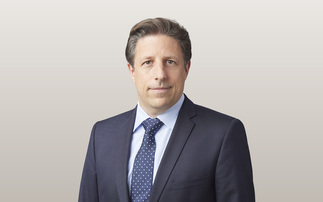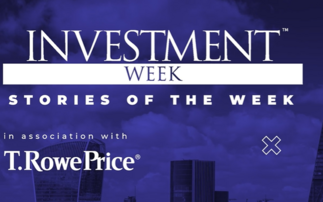
Highlights
- The Vanguard Equity Index Group is responsible for managing 17 international portfolios representing close to $800 billion in assets.
- As index fund managers, a lot of what the Equity Index Group does is data-driven, but human-side decisions can really add value for investors.
- Artificial intelligence (AI) has the potential to reshape and accelerate the way equity index fund managers make decisions.
The Vanguard Equity Index Group is responsible for managing 17 international portfolios representing close to $800 billion in assets1. Christine Franquin, senior portfolio manager for the Vanguard Equity Index Group, talks about the evolution of Vanguard's international trading desk, the advantage gained from a feet-on-the-ground trading approach and the technological advances that could revolutionise the way investment managers navigate markets.
How did you come to the Vanguard Equity Index Group?
After practicing law for three years, I met Vanguard at an MBA fair on campus while pursuing a master's degree in finance. There was an opening back in Belgium, and I was attracted to Vanguard's unique investor-owned structure2.
When I accepted the role in 2000, I thought I would be at Vanguard for a few years. My role was to develop Vanguard's trading capabilities in Europe and help our shareholders save money on execution costs. It slowly evolved to a larger role and I was asked to hire and train our European investment team. Growing a team from the ground up was definitively an opportunity to expand outside of pure technical skills and develop management and strategic skills. I was appointed the head of Vanguard's European investment team a few years later and then I relocated to the Malvern, Pennsylvania, campus in 2011. I'm still here at Vanguard, 23 years later. It wasn't my intent to work in financial services at the start of my career, but being at Vanguard changed my trajectory. Here I found work that I'm interested in, a place where people care about me and colleagues who truly want what's best for shareholders and their team. It was a surprising and welcome change from my prior experience in law.
What changes have you seen during your 23 years at Vanguard?
I was the first trader on Vanguard's European trading desk and the third person hired by Vanguard in Europe overall. The desk has certainly evolved over time. At first, the idea was to implement Vanguard's US model overseas but, at the time, European stock markets were not as integrated as they are now. There were 16 different markets, each with its own rules and structures—and we had to know how to trade in each. Finding feet-on-the-ground partners in each country was really the key in the beginning. Building those partnerships helped us reduce the amount of time it takes to find trading counterparties, trim operating costs and take advantage of newfound efficiencies that continue to create value for investors today.
There has also been a big shift in diversity in the industry. For a long time, I was the only woman, but that's changed a bit over time. Today there is more parity than in the past, thanks to firms like Vanguard that seek to promote diversity across different disciplines within investment management.
How is Vanguard's Equity Index Group structured? How is the team positioned as an international equity index fund manager?
As index fund managers, a lot of what we do is data-driven, but it's the human-side decisions that really add value for our investors. We tightly track our indices but, even so, large trades require finesse and have the potential to impact investor outcomes. We have a unique organisational structure—our portfolio managers also act as traders—which gives us the ability to respond to market volatility in real time within our trading strategies, to react to index events, and increasingly, to position ourselves ahead of a burgeoning industry of market participants such as hedge fund managers, who sometimes aim to profit from index funds' trade-related inefficiencies. Our sophisticated portfolio management technique includes the use of simulated models and data-driven trade lists, as well as the knowledge that comes from person-to-person conversations with stockbrokers, from watching previous trades roll out and from having an intimate knowledge of the types of events that can stymie models but point toward safe trade opportunities.
From an international perspective, we have feet on the ground in three continents, with teams in Australia, the UK and the US. We practice a ‘pass-the-book, pass-the-trade' model, which delegates certain decision-making responsibilities and execution powers to our regional traders. Because they are closer to their regional markets, we expect local traders to have a better understanding of where opportunities exist, the risks associated with trading in a particular market and the regional costs associated with execution.
How does Vanguard leverage its international investing experience and process to strategically add value for investors?
Our process is very collaborative, and we rely heavily on the feedback that's funnelled up from our regional trader teams, as well as checks from our risk management team. We work together to identify efficient ways to handle an index event—be it from a stock split, a change in index composition or a rebalance. It's essential that we understand the risks associated with each trade, across each of our portfolios. Taxation rules differ between countries, specific trades may affect certain national economies more than others and our network of partners on the ground is unique from region to region. We use the combined knowledge of our teams to understand the risks of each trade, how each can affect portfolio construction and whether we need to be aware of any potential hedging bets from market participants seeking to exploit arbitrage opportunities.
Having people on the ground is a real advantage. The relationships between our analysts and local brokers help us in many ways. They give us the power to recognise and realise a fair price of execution. They grant us a close-up view of volume and liquidity. They give us the resources to effectively spread a rebalance trade over time, which can significantly decrease market impact. They also help us identify attractive allocations to initial public offerings. In short, our relationships help us manage risk across the reality of the constantly changing market. The way we execute a specific trade can add up to hundreds of millions of dollars in value across all of our portfolios, which can make a material difference to our investors.
We also manage a shareholder-friendly securities lending programme, which offers an additional source of revenue for our investors. Vanguard has a conservative, highly regarded securities lending programme. Our value-oriented approach generally restricts lending strategies to high-demand securities to earn a higher premium for each transaction and minimises risk because only a small portion of the fund's holdings are on loan at any point in time. And importantly, 100% of all lending revenues, net of expenses, are returned directly to the Vanguard funds to enhance shareholder returns, so our investors benefit.
What's next for index fund investors? How might the industry change in coming years?
What we see today is very different from how things looked when I joined the industry. And the world is still changing. Artificial intelligence (AI) could reshape and accelerate the way we make decisions. With AI, we can see how market participants like hedge fund managers are positioning themselves against index fund managers in real time. We can monitor a company that's showing signs of a looming bankruptcy, even if those signs are coming from a different market. We'll have access to, and be able to efficiently parse through, larger amounts of information, which could create new strategic opportunities. We are evolving into a world where all of this will be open to us.
Indexing at Vanguard
Our global index offering is built on an uncompromising commitment to quality. Watch this video to learn more about indexing at Vanguard.
1 Source: Vanguard, as of 31 August 2023. AUM figure includes assets invested in equity index trust and variable insurance products.
2 The Vanguard Group, Inc. is owned by its US clients.
Investment risk information
The value of investments, and the income from them, may fall or rise and investors may get back less than they invested.
ETF shares can be bought or sold only through a broker. Investing in ETFs entails stockbroker commission and a bid- offer spread which should be considered fully before investing.
Important information
For professional investors only (as defined under the MiFID II Directive) investing for their own account (including management companies (fund of funds) and professional clients investing on behalf of their discretionary clients). In Switzerland for professional investors only. Not to be distributed to the public.
The information contained in this document is not to be regarded as an offer to buy or sell or the solicitation of any offer to buy or sell securities in any jurisdiction where such an offer or solicitation is against the law, or to anyone to whom it is unlawful to make such an offer or solicitation, or if the person making the offer or solicitation is not qualified to do so. The information in this document does not constitute legal, tax, or investment advice. You must not, therefore, rely on the content of this document when making any investment decisions.
The information contained in this document is for educational purposes only and is not a recommendation or solicitation to buy or sell investments.
Issued in EEA by Vanguard Group (Ireland) Limited which is regulated in Ireland by the Central Bank of Ireland.
Issued in Switzerland by Vanguard Investments Switzerland GmbH.
Issued by Vanguard Asset Management, Limited which is authorised and regulated in the UK by the Financial Conduct Authority.
© 2023 Vanguard Group (Ireland) Limited. All rights reserved.
© 2023 Vanguard Investments Switzerland GmbH. All rights reserved.
© 2023 Vanguard Asset Management, Limited. All rights reserved.














